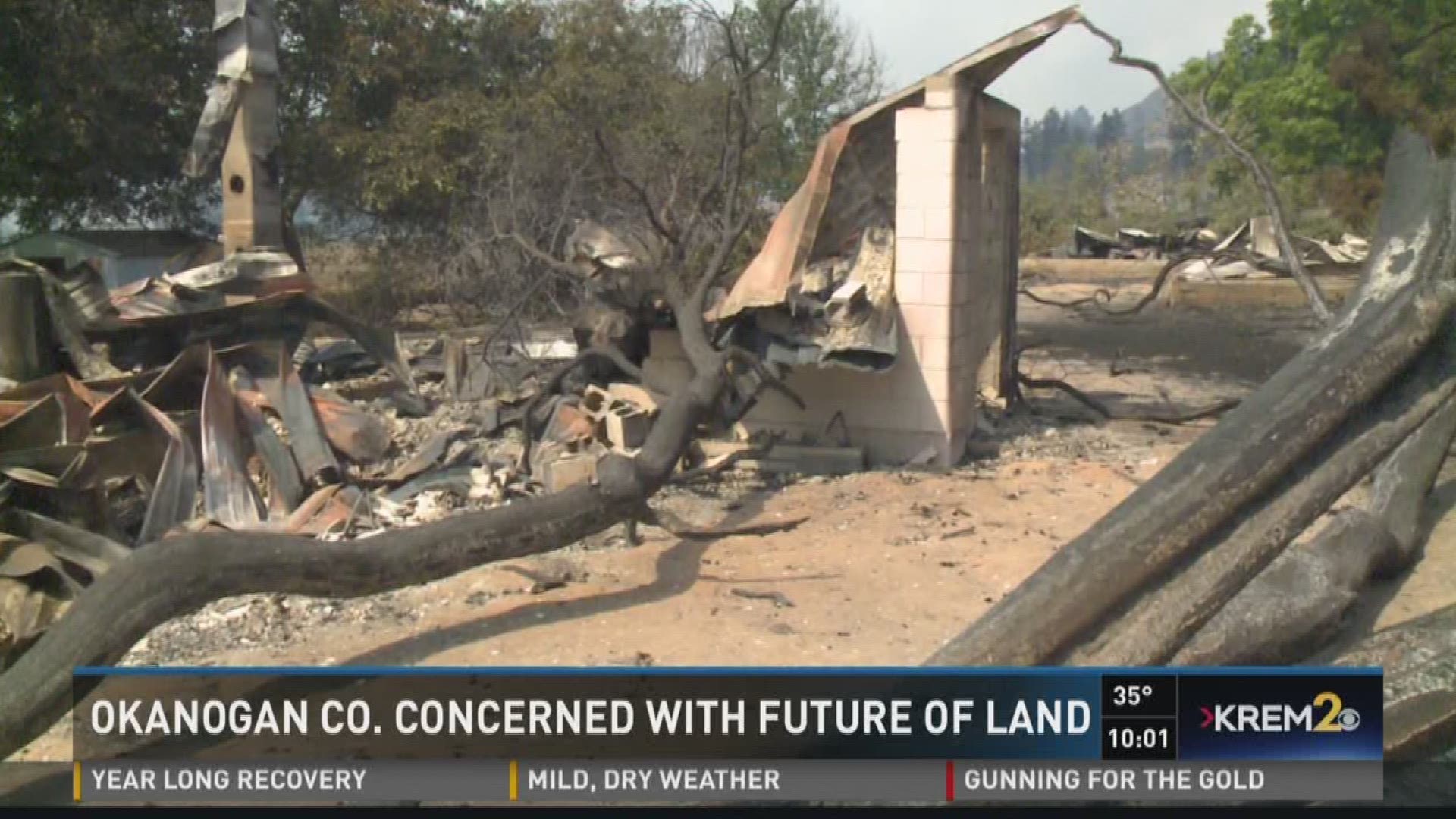OKANOGAN CO., Wash. – Evidence of the summer's catastrophic wildfires can still be seen across Okanogan County. Landowners across the county are sharing some of the same frustrations as the militia group connected to the controversial standoff at an Oregon wildlife refuge.
Landowners are frustrated over land use practices, ranging from grazing to timber harvesting.
Landowners said they have been talking for years about how land use practices in the area need to change. They said the extreme wildfire risk in the county will not change until the state does a better job of managing the land.
“I think most of the people in agriculture that have cattle, understand the roots of what happened there,” said Rod Haeberle.
Haeberle said Ammon Bundy and his fellow occupiers at the wildlife refuge in Oregon finally got attention for what Western ranchers have been saying for years. Haeberle added that neglect and over-regulation is eroding the backbone of American agriculture and is making it more susceptible to devastating wildfires.
Nicole Kuchenbuch and her family have been cattle ranching public and private land outside of Conconully for decades. For the last several years, they have been the first line of defense against the biggest wildfires in state history.
“We actually pay to use state and federal grounds, and within those contracts, we are legally required to be the first responders in a fire scenario,” said Kuchenbuch.
Kuchenbuch said it has become a losing battle over the years.
“For the last four generations, we’ve seen a steady decline in the health of the forest,” said Kuchenbuch. “Over the years of non-logging up there, what we’ve got is trees that are growing so densely, they’re not healthy trees.”
Kuchenbuch said that when fire comes through the area, their heavy fuel load causes it to become a catastrophic fire.
Many in Okanogan County said during last year’s catastrophic fire, state and federal firefighters used back burning to try and control the spread, even on private property.
Scott Vejraska lost almost 300,000 acres to the wildfire.
“120,000 of that was back-burn. We didn’t ask to be back-burned. Even on my private property on Omak Mountain. They showed up. I told them not to and they did it anyways,” said Vejraska.
Vejraska said at the point, fire is fire. It had tremendous impact on his family and countless others across the region.
“We understand there’s a way of controlling it, and sometimes, that’s a back-burn. But when you don’t have enough resources, and you light another fire, there’s nowhere to go. It’s just going to keep going,” said Vejraska.
Haeberle said the fires grew and grew. Some of the set backfires were as large as the fire.
Landowners said the worst part of the whole situation is there is no way of recouping those losses, like timber, even for a fire that was technically started at the hands of the government.
“It never gets recovered. That’s half of the sad story. The rest of the story is, in the years ensuing, because it never gets cleaned up and removed. It’s very ready to burn again. It will pile up like toothpicks and the next time it burns, if you think first fire was bad, wait until you see the next one,” said Haeberle.
Okanogan County is the biggest county in Washington. More than 80 percent of the public land is either state or federally managed.
County Commissioner Sheilah Kennedy said it is the 20 percent private land owners burdened with maintaining it.
“That, right there, pretty much points out how much pressure is on the private individuals to be able to carry the weight,” said Kennedy.
The Washington Department of Fish and Wildlife, for example, has been billed more than $1.5 million since 2012 for county land it has acquired. The payments are supposed to compensate for removing it from the county’s tax base.
Kennedy said, through a loophole in legislative language, the department has paid less than a third of that. She said that alone is a million dollar shortfall taken away from critical services like fire protection.
“Huge impact to our budget. And as county commissioners, we are trying to figure out how we provide essential services that we’re required to provide, and yet, one of our land owners that owns more than 300,000 plus acres are not carrying their weight,” said Kennedy.
Kennedy agreed that to truly minimize the wildfire risk in the county, the government has to start doing more.
Otherwise, many property owners said they will continue to face the same problems with every new fire season.
“My family lost 100 percent of our private property. We lost all of our grazing land, all of our fences. Forty miles of fencing,” said Kuchenbuch. “The biggest unknown is that this isn’t over for us. Fire recovery, on a ranch, goes for years. We can’t just turn cattle back out this spring.”
Kuchenbuch said they will probably have to leave the area to find new pastures. She said she believes the harder it becomes for farmers and ranchers to use local land, the less likely it is they will be able to stay in business.
“In the meantime, America has lost producers of viable food,” said Kuchenbuch. “The issue is not just about ranchers. This is about all agriculturalists. If we squeeze out all agriculturalists, we need not be shortsighted. They will outsource our food.”
Kuchenbuch said that will have an even greater impact than the last two years of Washington wildfires combined.
“I think food could become the oil of the next century, if we’re not careful,” said Kuchenbuch.
Rod Haeberle said, “When people get hungry, they’re going to wonder where their famers went. And it’s going to be a little too late.”

